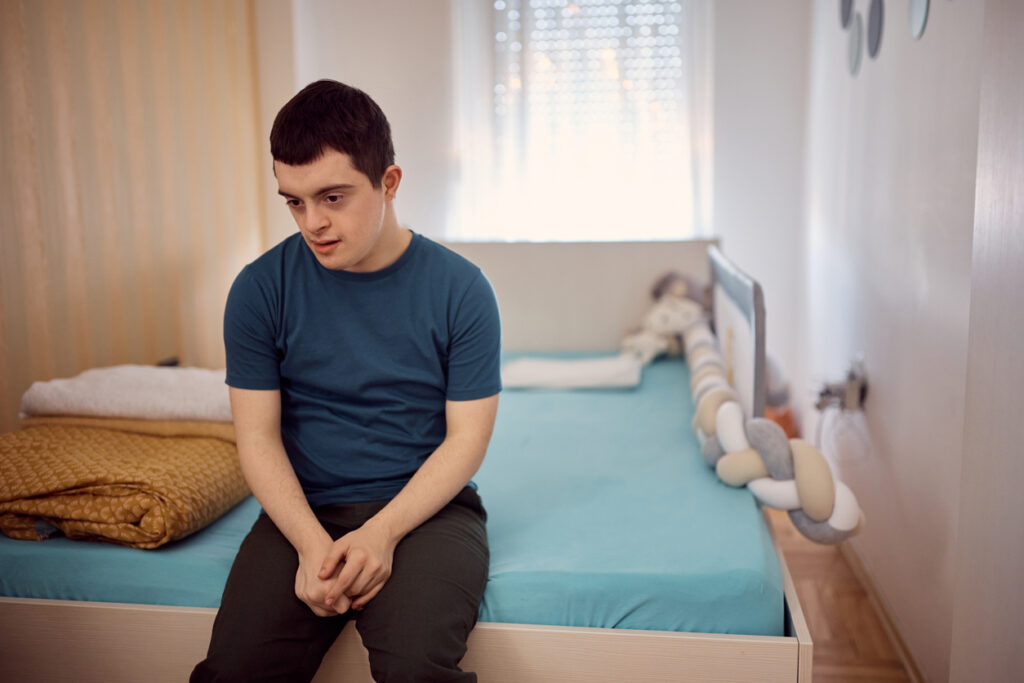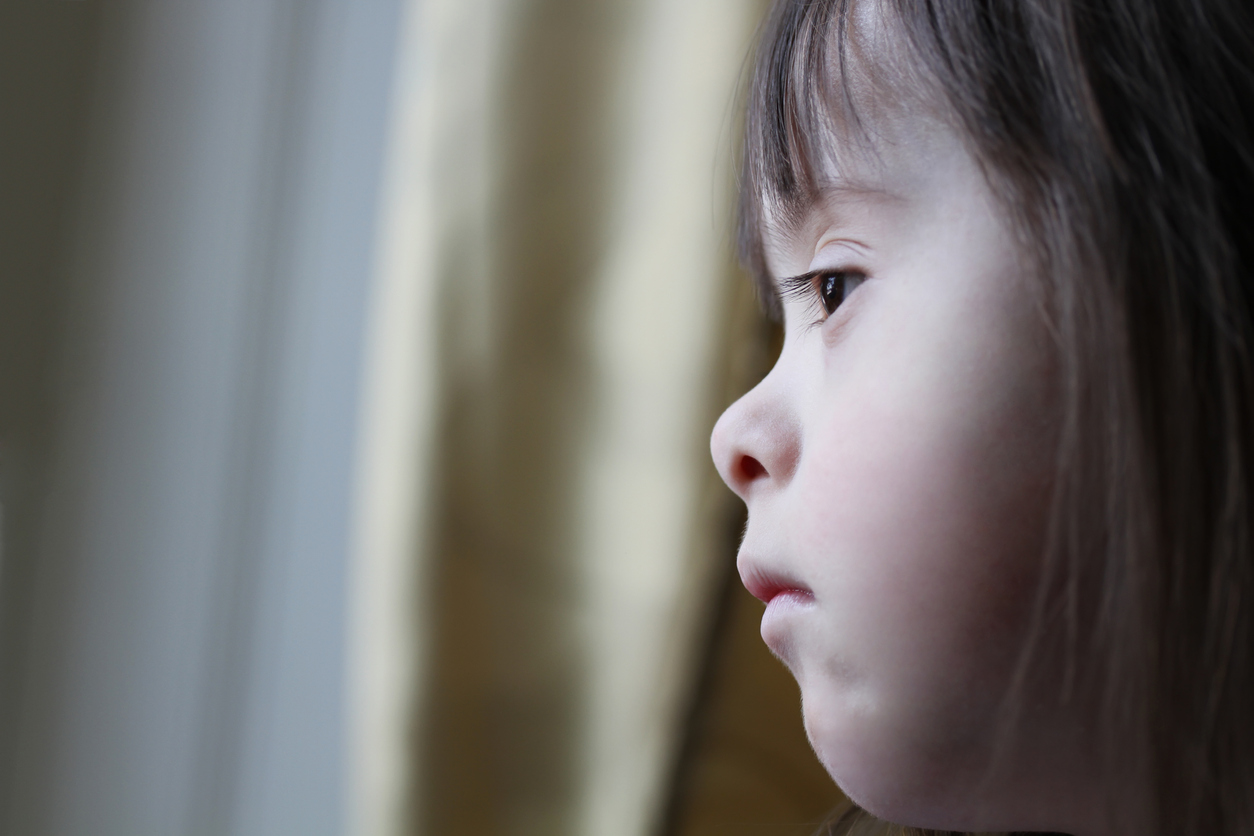Individuals with IDD can thrive when they have access to resources and support. One potential challenge to receiving the support they need can be accessing mental healthcare to alleviate or cope with the negative effects of depression or other mental health concerns.
This article will discuss the available statistics about the intersection of individuals with IDD and depression, why the data may be incomplete, how to support them, and how this overview can empower individuals with intellectual and developmental disabilities, providers, and support persons to find treatment.
What Is Depression?
Depression is a treatable medical disorder that causes a person to feel sad or lose interest in activities that they used to enjoy. Depression is common. Between 2-16% of individuals with intellectual and developmental disabilities develop depression. This statistic is almost the same as for persons in the general public. It is possible that people with IDD experience depression even more often, but they may not be diagnosed.
Some symptoms you may see in someone with IDD struggling with depression include:
- Withdrawing from social interactions
- Trouble sleeping
- Low mood
- Lack of interest in activities or opportunities they usually enjoy
- Aggression
- Self-harm or suicidal ideation
Risk Factors for Depression and How They Correlate to IDD
Anyone, regardless of circumstances, can develop depression. Individuals with intellectual and developmental disabilities are not immune to the most common risk factors associated with depression. These include being genetically related to someone with depression, having brain biochemistry prone to depression, struggling with low self-esteem, and being exposed to negative environmental factors.
In addition to these factors, studies that looked specifically at persons with IDD found these correlations:
- Women are more likely to be diagnosed with depression
Similar to the general population, women with IDD are more likely to have and be treated for depression.
- Poor physical health can result in more incidence of depression
Poor physical health is consistently correlated with a higher incidence of depression. Whether the cause of the poor health was a chronic condition or another physical health crisis, this correlation indicates that it should be one of the primary risk factors for a person with IDD to develop depression.
- Negative life events increase the chances of someone with IDD developing depression
Individuals with IDD are more likely to develop symptoms of depression after enduring a life event they perceive as negative.
Why the Statistics Cannot Tell the Whole Story
Although there are many resources for people living with intellectual and developmental disabilities, persons building their life with IDD still face many challenges to being understood and cared for. Many research resources acknowledge that the statistics on how many persons with IDD live with depression may be low. There are challenges in the IDD community in both getting a diagnosis of depression and then receiving appropriate care.
Without more dedicated funding and research, it may be difficult to know exactly how many persons with IDD are facing depression, and how depression is affecting this part of the population.
Challenges Individuals With IDD Face in Being Diagnosed With Depression
Individuals with intellectual and developmental disabilities face a unique set of challenges in having depression. Early identification of symptoms and risk factors may cause delays because of difficulties communicating. Some of the symptoms of depression may look like other common challenges of people with IDD. A symptom that is related to depression attributes to another disorder or physical illness.
In addition, people with intellectual and developmental disabilities may have difficulties scheduling and getting to and from appointments to support their mental health. Also, caretakers may miss the signs that a person is struggling with depression.

Challenges of Individuals With IDD Receiving High-Quality Care for Mental Health
Even when a person with intellectual and developmental disabilities can receive a diagnosis of depression, they may struggle to find adequate mental healthcare. Treatments for depression include medications and psychotherapy. A general practitioner can prescribe medication to a patient with IDD for their depression. However, without the additional support of this therapy, the person may still struggle with depressive tendencies.
Finding a skilled therapist who understands how to support persons living with both IDD and depression can be difficult, especially in areas where mental healthcare is in high demand. It is important to find a practitioner who is compassionate and positive about the good effects of pursuing therapy with someone with intellectual and developmental disabilities.
Family members may become frustrated trying to find appropriate care from a mental health professional. This causes further delays in diagnosis and treatment.
Benefits of Psychotherapeutic Treatment for Persons With IDD
Individuals with intellectual and developmental disabilities may struggle to communicate their inner world to a therapist. Therapy can help a person struggling with depression learn to express and process their internal experiences more beneficially. Depression is treatable, so persons with IDD may be able to feel relief from their symptoms and connect more positively with their world with treatment.
How to Support a Person With Depression and IDD
If you have noticed that a person you know with intellectual and developmental disabilities is exhibiting symptoms of depression, or if you even suspect it may be a part of their daily struggles, the best course of action is to visit a professional who can identify if their symptoms correlate to depression. Mental health disorders such as anxiety, depression, bipolar, and panic disorders may have overlapping symptoms. A psychologist who identifies mental health conditions will have the best chance of helping someone with IDD understand their condition.
Maintaining a positive outlook and helping a person with intellectual and developmental disabilities and depression keep up with a good schedule of therapy, and physical exercise, and successfully coping with adverse life events can provide the support needed.
Continue to advocate for yourself or your loved one with IDD, and seek out appropriate treatment options in your area.
Bottom Line
Depression is a treatable mental health concern that affects some persons with intellectual and developmental disabilities. Although individuals with IDD may face unique challenges in receiving a diagnosis and treatment for their depression, support persons can help with the process by identifying the potential symptoms and advocating for appropriate care. Also, conduct more research to continue to help advocates identify, diagnose, and treat patients with IDD and depression.
Contact your intellectual and developmental disabilities support system to find resources that can help.




